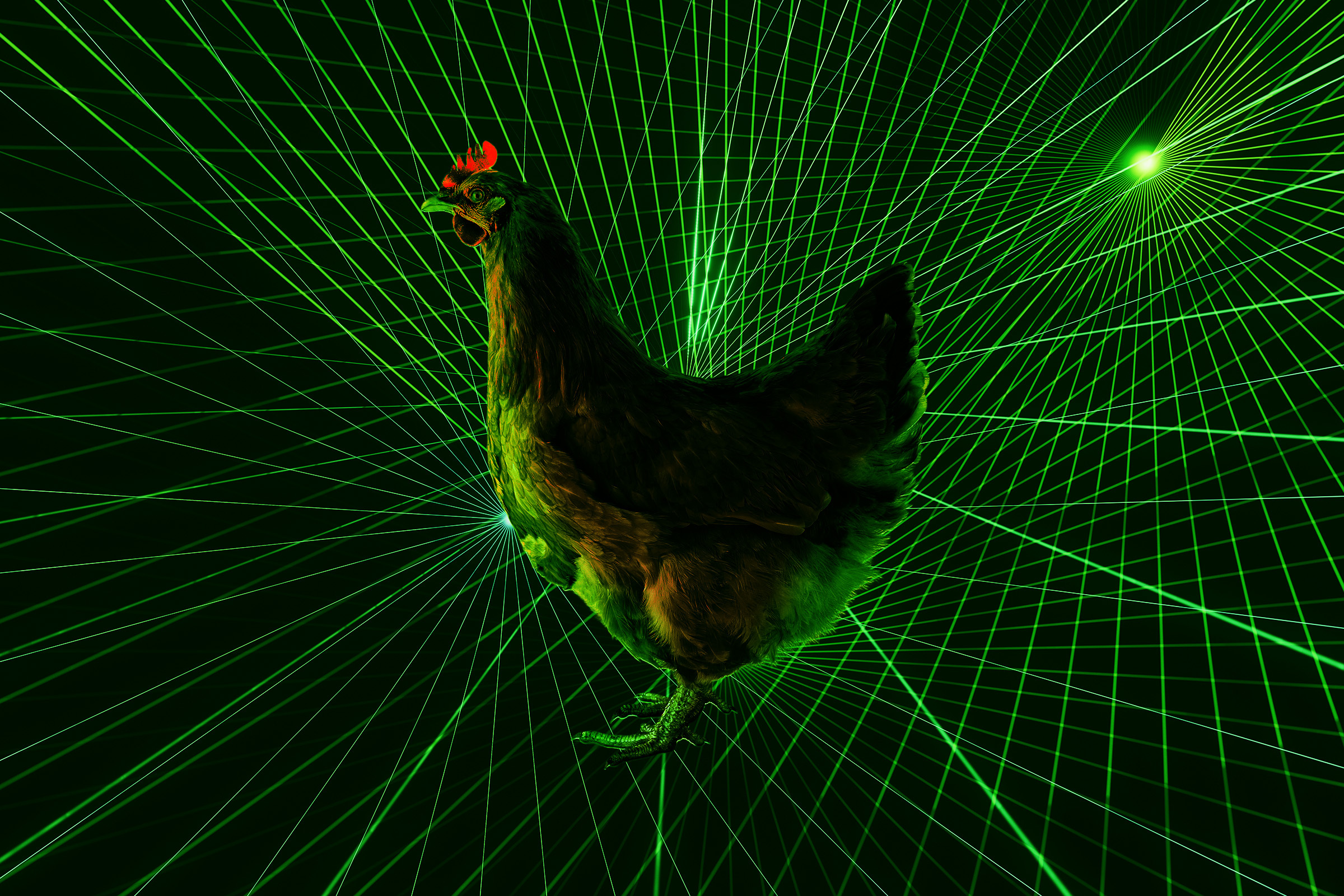A new innovation in poultry management has emerged from Japan, where farmers are beginning to utilize automated laser drones to safeguard their chickens. Developed by NTT e-Drone Technology Company Ltd, this drone-laser system aims to deter wild birds and other unwanted animals from chicken coops, addressing significant challenges faced by the poultry industry.
Addressing the Bird Flu Crisis
The introduction of the drone technology comes in the wake of a severe bird flu outbreak in Chiba Prefecture, which is located directly east of Tokyo. Earlier in January 2023, approximately five million chickens were euthanized across Japan to combat the spread of the highly pathogenic virus, with 3.3 million of those fatalities occurring in Chiba alone. In response to this crisis, the Japanese government deployed national guard resources to help manage the situation.
The drone system features a quadcopter equipped with a laser-grid projector, which emits a combination of red and green lasers to scare off potentially harmful wildlife. In test footage, the drone successfully navigates towards various unwanted visitors, including wild boar, stags, crows, pigeons, and other birds.
Innovative Farming Technology
The laser drones represent a significant advancement in farm management technology. Traditional methods for deterring wildlife often involve hazardous chemical repellents, guard dogs, or physical barriers such as netting. For example, in August 2023, a California trapper found wild boar with deep-blue meat after they consumed diphacinone, an agricultural pest repellent. The implementation of laser drones could reduce the reliance on such chemicals, minimizing their impact on the natural food chain.
Currently, the drone system is in the proof-of-concept phase, and the prefectural government of Chiba is evaluating its potential adoption. Should the government approve the technology, subsidies will be made available to farmers, facilitating the deployment of these drones across the region. This initiative aims to prevent further outbreaks of bird flu and enhance the overall safety of poultry farming.
The collaboration between NTT e-Drone Technology and the Chiba government underscores the urgency of finding effective solutions to protect poultry. If successful, the laser drone could not only revolutionize chicken farming practices but also set a precedent for other agricultural sectors facing similar challenges.
As the world continues to grapple with food security issues, innovations like the NTT laser drone could provide essential tools for farmers, ensuring the health and safety of livestock while protecting the environment. The outcome of this initiative will be closely watched, as it could pave the way for similar technologies in other regions.
